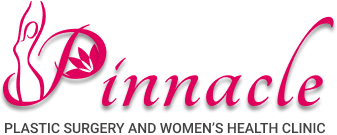- Have any questions?
- +91 80815 98454
- pinnaclepswh@gmail.com
Revive Your Hair: PRP Therapy for Rejuvenation

Restoring Confidence: Amit’s Hair Transplant Experience at Pinnacle Clinic
June 29, 2023Comparing Mobile Apps
December 19, 2024Revive Your Hair: PRP Therapy for Rejuvenation

In India, hair loss is a prevalent concern affecting millions of people across various age groups and genders. With its rich cultural diversity and a wide range of traditional remedies, the quest for effective hair rejuvenation has become an integral part of the nation’s beauty and wellness practices.
In this blog, we will dive into a modern, natural, and non-surgical solution gaining popularity in India – PRP therapy for hair rejuvenation. Discover how Platelet-Rich Plasma (PRP) is revolutionizing hair restoration, empowering individuals to regain their confidence and embrace their natural beauty at Pinnacle Plastic Surgery and Women’s Health Clinic.
Understanding Hair Loss
Hair loss can affect both men and women, with various types like androgenetic alopecia and alopecia areata. Genetics, hormonal imbalances, and lifestyle factors play a crucial role in hair loss, disrupting the hair follicles’ growth cycle.
What is PRP Therapy?
Platelet-Rich Plasma (PRP) is a cutting-edge regenerative treatment that has gained significant popularity in the field of hair rejuvenation. It is a concentrated solution derived from the patient’s blood, and its composition holds the key to its remarkable healing properties.
PRP is a golden-hued serum obtained from the patient’s blood, rich in platelets, growth factors, and bioactive proteins. The process begins with a simple blood draw, where a small amount of blood is extracted from the patient. This blood sample is then placed in a centrifuge, a specialized machine that spins the blood at high speeds. During this centrifugation process, the blood components separate based on their density.
The result is the separation of whole blood into distinct layers, with red blood cells settling at the bottom, and plasma, enriched with platelets, rising to the top. The platelet-rich plasma is carefully collected, becoming the potent solution that will trigger hair rejuvenation.
One of the many benefits of PRP therapy is its minimally invasive nature. The extraction process starts with a quick and painless blood draw, similar to what one would experience during a routine medical check-up. The collected blood is then processed using the centrifuge to obtain the concentrated PRP.
Since PRP is derived from the patient’s blood, the risk of adverse reactions or infections is virtually eliminated, making it a safe and natural option for hair rejuvenation.
Now the question that may arise in your mind is how is this going to help in hair rejuvenation?
Let me explain. In the context of hair rejuvenation, the growth factors present in PRP act as messengers, signalling the hair follicles to enter the growth phase and promoting the regeneration of dormant or weakened hair follicles. This stimulation leads to improved hair density, thickness, and overall hair health.
Preparation and Precautions
Before undergoing PRP therapy for hair rejuvenation, patients typically do not require any specific preparation. However, it is essential to consult with Dr. Shree Harsh at Pinnacle Plastic Surgery to discuss any medical history, current medications, or allergies. This information helps ensure that PRP therapy is safe and suitable for the individual.
While PRP therapy is a minimally invasive procedure, patients may be advised to follow some general guidelines to optimize the treatment’s effectiveness:
- Hydration: Staying well-hydrated before the procedure can facilitate the blood draw process, making it easier to extract the necessary amount of blood for PRP preparation.
- Avoiding Blood Thinners: Patients may be advised to avoid medications or supplements that can thin the blood for a few days leading up to the procedure. This precaution helps prevent excessive bleeding during the blood draw.
- Avoiding Alcohol and Smoking: Abstaining from alcohol and smoking for a few days before the PRP therapy can promote better healing and reduce the risk of complications.
- Scalp Cleanliness: Patients are encouraged to maintain a clean and dry scalp on the day of the procedure to minimize the risk of infection.
One question which many patients frequently ask is about the duration and frequency of PRP sessions. Dr. Shree Harsh clarifies it as under.
Duration and Frequency of PRP Sessions
The duration and frequency of PRP therapy sessions vary depending on the individual’s unique needs and the severity of hair loss. Typically, a series of PRP sessions spaced several weeks apart is recommended to achieve optimal results.
- Initial Phase: In the initial phase of PRP therapy, patients may undergo 3 to 4 sessions, spaced 4 to 6 weeks apart. This allows enough time for the growth factors in PRP to stimulate hair follicle activity and promote hair rejuvenation.
- Maintenance Phase: After the initial phase, patients can move on to a maintenance phase. This phase involves periodic PRP sessions, usually every 4 to 6 months, to sustain hair growth and maintain the results.
PRP therapy for hair rejuvenation is a versatile treatment option, and several factors can determine the candidacy of individuals.
Who is the suitable candidate for the PRP procedure?
Experience Early Stages of Hair Loss: PRP therapy is most effective for individuals in the early stages of hair loss, where hair follicles are still active and responsive to stimulation.
- Have Androgenetic Alopecia: This common form of hair loss, often referred to as male or female pattern baldness, is well-suited for PRP therapy as it primarily involves miniaturized hair follicles.
- Suffer from Alopecia Areata: Individuals with alopecia areata, a condition characterized by patchy hair loss, may benefit from PRP therapy to promote hair regrowth in affected areas.
- Seek Non-Surgical Solutions: Candidates who prefer non-surgical, minimally invasive procedures to address their hair loss concerns can consider PRP therapy.
- Have Good Overall Health: PRP therapy is generally safe for individuals in good overall health, with no significant medical conditions that may interfere with the treatment.
- Are Not Pregnant or Breastfeeding: Women who are pregnant or breastfeeding should avoid PRP therapy as a precautionary measure.
- Understand Realistic Expectations: Suitable candidates have a clear understanding of the potential results and limitations of PRP therapy, setting realistic expectations.
- Are Committed to Multiple Sessions: Since PRP therapy often requires multiple sessions for optimal results, candidates should be willing to commit to the recommended treatment plan.
PRP therapy harnesses the body’s healing capabilities, offering a natural solution to combat hair loss and encourage hair growth. As a non-surgical and safe procedure, PRP therapy is becoming increasingly popular among individuals seeking effective and long-lasting hair rejuvenation without the need for invasive surgical interventions.
However, patients need to have realistic expectations regarding the results and understand that individual responses to PRP therapy may vary. Regular follow-ups and open communication with Dr. Shree Harsh will help monitor progress and make any necessary adjustments to the treatment plan, leading to successful and satisfying outcomes.
